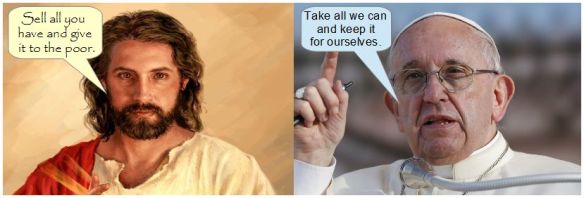
We the common people, you and I, don’t have the prime minister’s or the president’s ear. We lack power and influence: we’re not the CEO of large companies, obscenely wealthy or part of any religious lobby. Those in power can rely on the fact that next year we’ll have some other cause to send us out on the streets and on to social media. It will not trouble them.
Real change takes decades to achieve. It took over a century for gay people to have the rights they have today. Stonewall was not the beginning, but a milestone on a much longer journey. Protests over the summer don’t have this effect. The Civil Rights campaigns of the ’60s were only partially successful; we wouldn’t now have the Black Lives Matter movement if they had been wholly effective. Likewise women’s rights. Even the previous president of the US, who was inclined to do so, was unable to introduce greater gun control laws; the current incumbent has no interest in doing so and is, in any case, controlled himself by the gun lobby.
The place of the common people is to be controlled, regulated and herded. We’ve seen this in sharp focus during the Covid crisis. Granted safety measures have been for our own good, even if some have taken it upon themselves to defy them. Nonetheless, the advice and regulation during the pandemic has taken on the semblance of law when much of it isn’t at all, with police making criminals of individuals who have failed to comply.
Unless, of course, they were politicians, unelected advisers to the prime minister or members of the royal family. Their flouting of restrictions have been understandable and acceptable; the exception can be made for them. That’s power and influence for you.
If you or I were friends with Jeffrey Epstein and arranged through him to pay underage girls for sex, we might expect, once the law caught up with us, to serve a prison sentence. Not so Prince Andrew. He’s a royal and so exempt: power and influence.
If you or I killed a motorcyclist while driving on the wrong side of the road in another country and then flee the country claiming diplomatic immunity, we should expect to be extradited to face justice. Not so Anne Sacoolas, the wife of a US diplomat in the UK. She does not herself have diplomatic immunity, not that that should matter. Nonetheless, the Trump administration has refused to return her to UK. Power and influence.
If you or I failed to pay our tax in full, you could be sure the Revenue service would be down on us like the proverbial ton of bricks (I know this from experience when they miscalculated my tax a couple of years back.) Yet for many years Amazon, Netflix and Starbucks have either paid nothing or a tiny fraction of tax due in the countries where they make their money. Why should they? They are giants in their fields and above such petty concerns as paying full taxes – that’s for the little people, like you and me. It pays to have power and influence.
You and I probably receive, or received, a modest salary for the work we do/did. Not so investment bankers who award themselves thousands in bonuses – and occasionally millions – on top of extravagant salaries and the interest they make from hedge funds and off-shore investments. Successive UK governments in the UK, from both the left and right, have been promising for as long as I can remember to take down these ‘fat cats’ and restore some equity to remuneration. Despite the bank collapses a dozen years ago they still haven’t. Why? Because bankers have too much power and influence. One thing we’ve learnt during the covid-19 pandemic is that they are far from being essential workers. Yet they continue to receive exorbitant rewards for what they do, while genuine key workers receive far less for their crucial service.
If you or I had lost a loved one in the 417 mass shootings in the US last year we would expect and implore the government to act. But it’s the NRA that has the ear of the president so gun laws remain unchanged. Power and influence.
The Catholic church has claimed at least $1.4 billion dollars from Covid-19 relief funds: not to feed the hungry but to line their own coffers. Who, ultimately, will pay for this handout and similar ones to equally wealthy organisations? That’s right – you and I will, through increased taxes, even though the money doled out was from our taxes to start with.
You and I aren’t able to influence the government with our personal beliefs and philosophies. Religious lobbies can. In the States, a number of prominent right-wing Christians serve as Trump advisers. The president is more than willing to aid them in scaling back the human rights of LGBT people and restricting women’s freedom of choice. In the UK, Church of England bishops have an automatic right to sit in the House of Lords where they can amend and veto the decisons of democratically elected MPs.
You and I don’t have power or influence. We are powerless. We are intentionally distracted, kept occupied by the modern equivalent of bread and circuses: television, sport, shopping, alcohol, social media.
Still, next time we’re faced with an injustice, we can always take to Twitter – or to the streets – for all the good it will do us.









